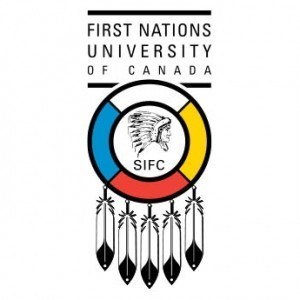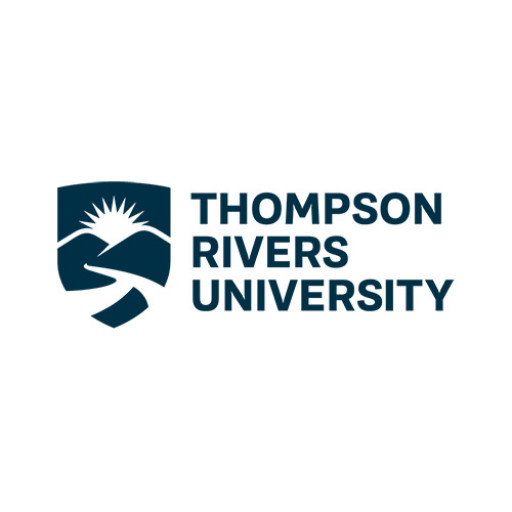Program Overview: Indigenous Health Studies at First Nations University of Canada
The Indigenous Health Studies program at First Nations University of Canada is designed to equip students with a comprehensive understanding of health issues facing Indigenous communities across Canada. This curriculum emphasizes traditional knowledge, cultural perspectives, and contemporary health practices to promote wellness and address disparities. The program aims to prepare graduates for careers in health promotion, community development, policy analysis, and health advocacy within Indigenous contexts.
Students will explore topics such as Indigenous healing practices, social determinants of health, mental health, substance use, preventive health strategies, and healthcare systems. The curriculum integrates Indigenous worldviews with scientific approaches, fostering a holistic understanding of health that respects cultural diversity and promotes respectful engagement with Indigenous populations. Through a combination of theoretical coursework, community involvement, and hands-on learning experiences, students gain practical skills and cultural competence essential for effective work in Indigenous health settings.
The program emphasizes collaborative learning and partnerships with Indigenous communities, allowing students to engage directly with community members and health organizations. This experiential approach aims to develop culturally responsive practitioners who can contribute positively to reducing health disparities and enhancing wellbeing in Indigenous populations.
Graduates of the Indigenous Health Studies program will be well-prepared for careers in public health, healthcare education, policy development, and community leadership, with a strong grounding in Indigenous perspectives and cultural safety. The program also provides a pathway for further academic pursuits in health sciences, social work, or related fields. Committed to fostering social justice and health equity, First Nations University of Canada’s Indigenous Health Studies program is integral to nurturing culturally competent health professionals dedicated to positively impacting Indigenous communities nationwide.
The Indigenous Health Studies program at the First Nations University of Canada offers a comprehensive and culturally grounded education designed to deepen students' understanding of Indigenous health issues, historical contexts, and community-based approaches to wellness. This program emphasizes the integration of traditional knowledge with contemporary health sciences, fostering a holistic perspective on health and healing within Indigenous communities. Students engage in coursework that covers a variety of topics, including Indigenous ways of knowing, health disparities, health policy, social determinants of health, and the impact of colonization on Indigenous populations. The program also offers practical learning opportunities through community engagement, internships, and research projects that enable students to develop applicable skills and build meaningful relationships with Indigenous communities. Throughout their studies, students are encouraged to critically analyze the systemic barriers faced by Indigenous peoples in accessing healthcare and to consider innovative, culturally respectful solutions. The curriculum incorporates Indigenous languages, protocols, and cultural practices to ensure relevance and respect for Indigenous perspectives in health. Graduates of the program are prepared for careers in health promotion, community development, policy analysis, advocacy, and educational roles within Indigenous health organizations, government agencies, and healthcare institutions. The program aims to cultivate culturally competent health professionals who are committed to advancing Indigenous health equity and supporting Indigenous sovereignty in health initiatives. This interdisciplinary approach ensures that students not only gain a solid academic foundation but also develop a deep sense of cultural identity and responsibility to serve Indigenous communities effectively. With dedicated faculty members who are experts in Indigenous health and a supportive learning environment, the Indigenous Health Studies program at First Nations University of Canada offers a unique opportunity for students to become catalysts for positive change in Indigenous health outcomes nationwide.
Programme Requirements for Bachelor of Health Studies — Indigenous Health Studies at First Nations University of Canada:
Candidates must have successfully completed the Saskatchewan Grade 12 provincial examination or an acceptable equivalent from a recognized secondary school. Admission requirements typically include a minimum grade point average (GPA) of 65% or higher in core academic subjects, such as English, Mathematics, and Science. Applicants may also need to submit proof of Indigenous heritage, such as band membership or self-declaration, depending on the specific admission criteria for Indigenous students.
Prospective students are required to complete a general application form along with official high school transcripts or equivalent post-secondary transcripts if applicable. Some programs may require a personal statement or letter of intent explaining the applicant’s interest in Indigenous health studies and career aspirations. Letters of recommendation from teachers, community leaders, or professionals familiar with the applicant’s qualities and motivations can enhance the application.
Once admitted, students must complete a set of core courses in Indigenous health, cultural competency, public health, and health policy. The program also includes foundational courses in biology, psychology, and sociology to provide a comprehensive understanding of health issues affecting Indigenous populations. Elective courses are available in traditional healing practices, Indigenous politics, and community development. Students are expected to participate in community engagement activities and practicums that provide real-world experience in Indigenous health contexts.
To graduate with a Bachelor of Health Studies in Indigenous Health Studies, students must complete a minimum of 120 credit hours over a typical four-year full-time course load. This includes general education requirements, program-specific courses, and a capstone project or research paper. Maintaining a minimum GPA of 2.0 (on a 4.0 scale) is necessary for continued progression and graduation. Some courses may have prerequisites or co-requisites that students must complete beforehand.
Program graduates are encouraged to pursue further education, such as a Master’s in Public Health or Indigenous Health, or to seek employment in healthcare organizations, community clinics, health policy institutions, or Indigenous governance bodies. Continuous professional development through workshops, seminars, and certifications is also recommended to stay current with evolving health practices and policies related to Indigenous peoples.
Finally, students are expected to adhere to the ethical standards set by the university and associated Indigenous communities, demonstrating respect for cultural protocols and community confidentiality throughout their studies and professional activities.
Want to improve your English level for admission?
Prepare for the program requirements with English Online by the British Council.
- ✔️ Flexible study schedule
- ✔️ Experienced teachers
- ✔️ Certificate upon completion
📘 Recommended for students with an IELTS level of 6.0 or below.
The Indigenous Health Studies program at the First Nations University of Canada offers a range of financial aid options to support students throughout their academic journey. Scholarships specifically aimed at Indigenous students are available, including the Indigenous Student Scholarships, which recognize academic achievement, leadership, and community involvement. These scholarships often do not require repayment and can significantly reduce the financial burden of higher education. Additionally, the university participates in federal and provincial financial aid programs, providing students with loans and grants that are accessible through the Saskatchewan Student Loan Program and other government initiatives. These funding options are designed to assist with tuition costs, living expenses, and educational supplies.
Furthermore, the university encourages students to seek external funding sources such as community-based scholarships, Indigenous organizations, and national foundations that support Indigenous education initiatives. Many students also access work-study opportunities on campus, allowing them to earn income while gaining professional experience related to their field of study. The program's students are often eligible for special bursaries provided by the university and community partners, targeted at students pursuing health-related careers and those committed to Indigenous health and wellness.
In addition, some students may choose to participate in research assistantships, internships, or co-op placements that offer stipends or salaries, contributing to their overall financial stability during their studies. The university provides comprehensive guidance and support through its financial aid office, helping students navigate application processes and find eligible funding sources. While specific details about the total cost of the program or the exact financial aid packages are not publicly listed, the First Nations University of Canada emphasizes its commitment to accessibility and affordability, ensuring Indigenous students have the necessary financial resources to complete their degrees successfully. Overall, students enrolled in the Indigenous Health Studies program have access to a variety of financial supports designed to promote educational success, mitigate economic barriers, and foster community development.
The Indigenous Health Studies program at First Nations University of Canada is designed to provide students with a comprehensive understanding of Indigenous health issues, emphasizing the unique cultural, historical, and social contexts that influence health outcomes among Indigenous populations in Canada. The program aims to equip students with the knowledge and skills needed to address health disparities, promote wellness, and contribute to Indigenous communities and health systems.
The curriculum integrates Indigenous perspectives and ways of knowing with western health sciences, fostering a holistic approach to health and wellness. Courses cover topics such as Indigenous concepts of health and healing, social determinants of health, health policy, traditional healing practices, and community health. The program also emphasizes research methods that are culturally appropriate and encourages students to engage in community-based projects and internships to gain practical experience.
Students enrolled in the Indigenous Health Studies program have opportunities to learn from Indigenous scholars, health practitioners, and community leaders. This experiential learning enhances their understanding of the complexities faced by Indigenous peoples in accessing healthcare and highlights strategies for improving health outcomes through culturally respectful practices. The program prepares graduates for careers in health education, advocacy, policy development, community health work, and further academic pursuits in health sciences or Indigenous studies.
Furthermore, the program aims to foster leadership among Indigenous students, empowering them to become agents of change within their communities. It also seeks to promote awareness about Indigenous health disparities and to advocate for health equity and social justice. The program's commitment is aligned with the broader goals of reconciliation and the recognition of Indigenous rights within the Canadian healthcare system. Graduates of the program are expected to contribute meaningfully to the development of community-based solutions that honor Indigenous traditions and knowledge systems while addressing contemporary health challenges.


